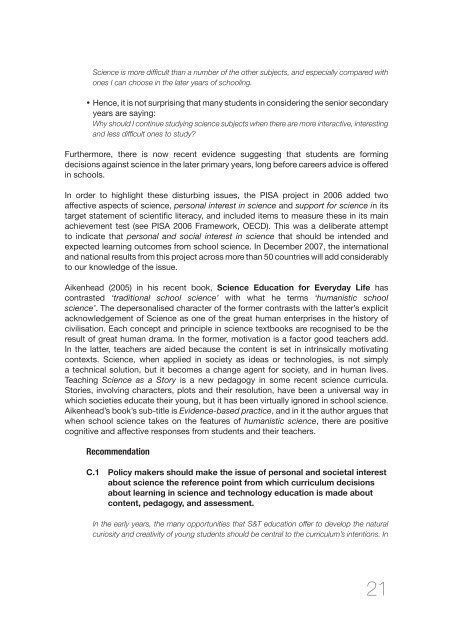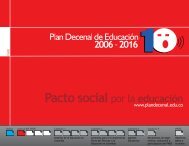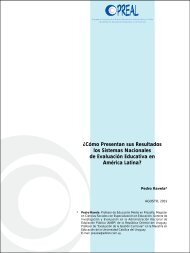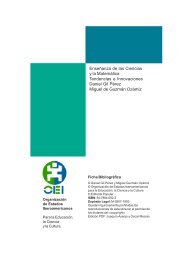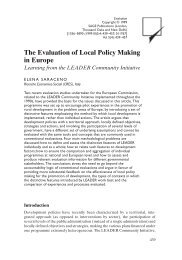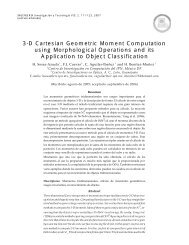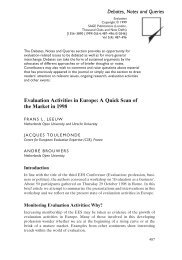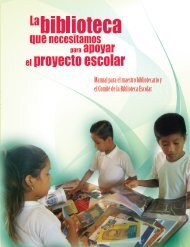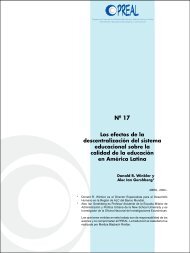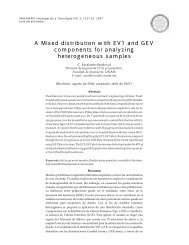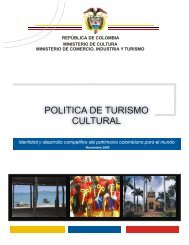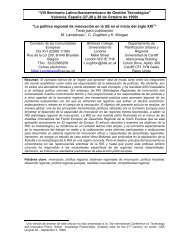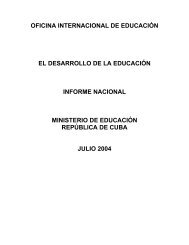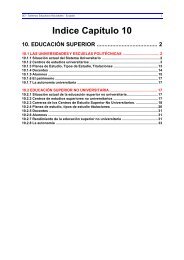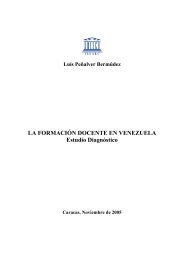Science education policy-making: eleven emerging issues; 2008 - OEI
Science education policy-making: eleven emerging issues; 2008 - OEI
Science education policy-making: eleven emerging issues; 2008 - OEI
Create successful ePaper yourself
Turn your PDF publications into a flip-book with our unique Google optimized e-Paper software.
<strong>Science</strong> is more diffi cult than a number of the other subjects, and especially compared with<br />
ones I can choose in the later years of schooling.<br />
• Hence, it is not surprising that many students in considering the senior secondary<br />
years are saying:<br />
Why should I continue studying science subjects when there are more interactive, interesting<br />
and less diffi cult ones to study?<br />
Furthermore, there is now recent evidence suggesting that students are forming<br />
decisions against science in the later primary years, long before careers advice is offered<br />
in schools.<br />
In order to highlight these disturbing <strong>issues</strong>, the PISA project in 2006 added two<br />
affective aspects of science, personal interest in science and support for science in its<br />
target statement of scientific literacy, and included items to measure these in its main<br />
achievement test (see PISA 2006 Framework, OECD). This was a deliberate attempt<br />
to indicate that personal and social interest in science that should be intended and<br />
expected learning outcomes from school science. In December 2007, the international<br />
and national results from this project across more than 50 countries will add considerably<br />
to our knowledge of the issue.<br />
Aikenhead (2005) in his recent book, <strong>Science</strong> Education for Everyday Life has<br />
contrasted ‘traditional school science’ with what he terms ‘humanistic school<br />
science’. The depersonalised character of the former contrasts with the latter’s explicit<br />
acknowledgement of <strong>Science</strong> as one of the great human enterprises in the history of<br />
civilisation. Each concept and principle in science textbooks are recognised to be the<br />
result of great human drama. In the former, motivation is a factor good teachers add.<br />
In the latter, teachers are aided because the content is set in intrinsically motivating<br />
contexts. <strong>Science</strong>, when applied in society as ideas or technologies, is not simply<br />
a technical solution, but it becomes a change agent for society, and in human lives.<br />
Teaching <strong>Science</strong> as a Story is a new pedagogy in some recent science curricula.<br />
Stories, involving characters, plots and their resolution, have been a universal way in<br />
which societies educate their young, but it has been virtually ignored in school science.<br />
Aikenhead’s book’s sub-title is Evidence-based practice, and in it the author argues that<br />
when school science takes on the features of humanistic science, there are positive<br />
cognitive and affective responses from students and their teachers.<br />
Recommendation<br />
C.1 Policy makers should make the issue of personal and societal interest<br />
about science the reference point from which curriculum decisions<br />
about learning in science and technology <strong>education</strong> is made about<br />
content, pedagogy, and assessment.<br />
In the early years, the many opportunities that S&T <strong>education</strong> offer to develop the natural<br />
curiosity and creativity of young students should be central to the curriculum’s intentions. In<br />
21


